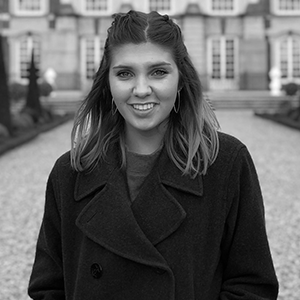How to Talk to Your Doctor about Heart Health
Written by: Makaila Heffner
3 minute read
June 4, 2021
Endocrinologist, Marina Basina, Ph.D., discusses how diabetes affects heart health and how to talk to your doctor about cardiovascular disease.
Have you ever wondered how to talk to your doctor about heart health? You’re not alone. We recently sat down with Marina Basina, Ph.D., an adult endocrinologist for patients with both type 1 and type 2 diabetes at Stanford Medical Hospital, to discuss cardiovascular disease and diabetes. Dr. Basina is also a member of Beyond Type 1’s Scientific Advisory Council.
BT2: How can diabetes affect heart health?
Dr. Basina: The combination of insulin resistance, hyperlipidemia, hypertension and hyperglycemia in relation to type 2 diabetes can contribute to the development of heart disease. We’re seeing that heart disease may develop sooner after the onset of type 2 diabetes because of the likely presence of insidious metabolic syndrome or the combination of all the above factors.
When should people with Type 2 diabetes begin talking to their doctors about heart health?
Doctors usually bring up heart health with the patient. We make sure that patients are on cholesterol-lowering medication because having diabetes is equivalent to having heart disease. Those patients are recommended to start a batch of cholesterol-lowering medication, regardless of cholesterol level. Some patients with longstanding diabetes may not have typical symptoms that would be manifesting, like angina (chest pain).
Some patients will just complain of unusual fatigue or heart palpitations that would trigger us to order some additional cardiac or specific cardiac tests. Like a stress test, going on a treadmill, or medication stress test to see if there are any manifestations of this occult heart disease that is present.
Should people with type 2 automatically seek out a cardiologist?
No, not all patients with diabetes should be seen by a cardiologist unless there’s an issue. It’s usually a screen by not just endocrine, but their primary care physician and endocrine in addition.
Are there any specific signs or symptoms people with type 2 should be aware of?
Some patients may not have the typical symptoms, like chest pain associated with physical activity. If patients already have some type of neuropathy, they may not have the typical chest pain even if they experienced a little bit of pressure or some shortness of breath. If the symptoms stop and go away, that would be the warning sign that patient needs to be checked.
Or if someone starts to notice their exercise tolerance is going down, this could be a sign, too. Let’s say three months ago someone was very active and had better exercise tolerance, but now it takes significant effort, and they get more tired or are experiencing chest pressure or heart palpitations, during that physical activity that should definitely prompt immediate attention.
Are there any questions that you feel that patients should come prepared to ask when they speak to their doctor?
If the patient has decided to change their lifestyle and decided to change the physical activity, but there has not been much physical activity before, they should check with the doctor and ask, “Is it okay if I start running?” Or, “If I started brisk walking or if I am going to go do my step master or elliptical machine, is it safe for me to start doing this physical exercise?”
If they do experience any of the symptoms that we just talked about, they should not be shy and bring it up to the doctor because some of those could be warning signs of heart disease that need to be investigated before something major happens.
For patients over the age of 40, regardless of what their cholesterol level is, we start on cholesterol medication. A lot of the patients with diabetes would say, ” Oh, my cholesterol is perfect. Why would I start a postural medication?”
That’s because cholesterol medications have been shown to be beneficial for a reduction of cardiovascular diseases regardless of a patient’s cholesterol level. If they do experience any side effects from the medication, there are many different medications so we can find a different one that works.
Do you have any advice for people who may feel ashamed or discouraged and how they can talk to their doctor?
Patients should not feel ashamed or guilty. This is not usually their fault that some of that lifestyle measures definitely could be improved, I’m sure, for all of us, right with diabetes or without diabetes, so we all have room for improvement they should definitely not be ashamed or feel guilty to talk about this,
When patients come to their visit, talk about their symptoms and ask questions, this is the very time to ask questions. The questions that are left unanswered serve no benefit to anyone. Because once the patient leaves, they don’t get the appropriate treatment and could potentially lead to a delay in treatment. Because all of this treatment is preventative, it has to be started early.
You can prevent them, but you cannot take a step back and say, “I’m going to completely reverse my cardiovascular disease.” It’s important to intervene early and not being afraid to ask.
Any last thoughts?
Prevention is the key; you need to start thinking about possible complications early. Because once they come, there is no turning back, but there is a way that we can prevent them as long as patients are proactive themselves. It’s very appropriate for patients themselves to bring this up and to ask questions, again, prevention is the key.
This educational content related to heart health and type 2 diabetes was made possible with support from Trulicity, a partner of Beyond Type 2.

Author
Makaila Heffner
Makaila was diagnosed with type 1 diabetes at 16 months old. Before joining the Beyond Type 1 team in 2019, she worked at several diabetes camps, including Camp Leo and DYF. Makaila earned her BA in Global Studies and a minor in Public Policy from the University of California, Berkeley. When she isn’t editing articles, Makaila is a fan of soup, public radio and live music. Check her out on Instagram: @makailaheifner.
Related Resources

The biggest barbecue day of the year is the 4th of July! Celebrating the 4th...
Read more

Hypoglycemia and severe hypoglycemia are two things against which all people with diabetes should be...
Read more

Whether or not you have type 2 diabetes, you must eat. You must also pay...
Read more

